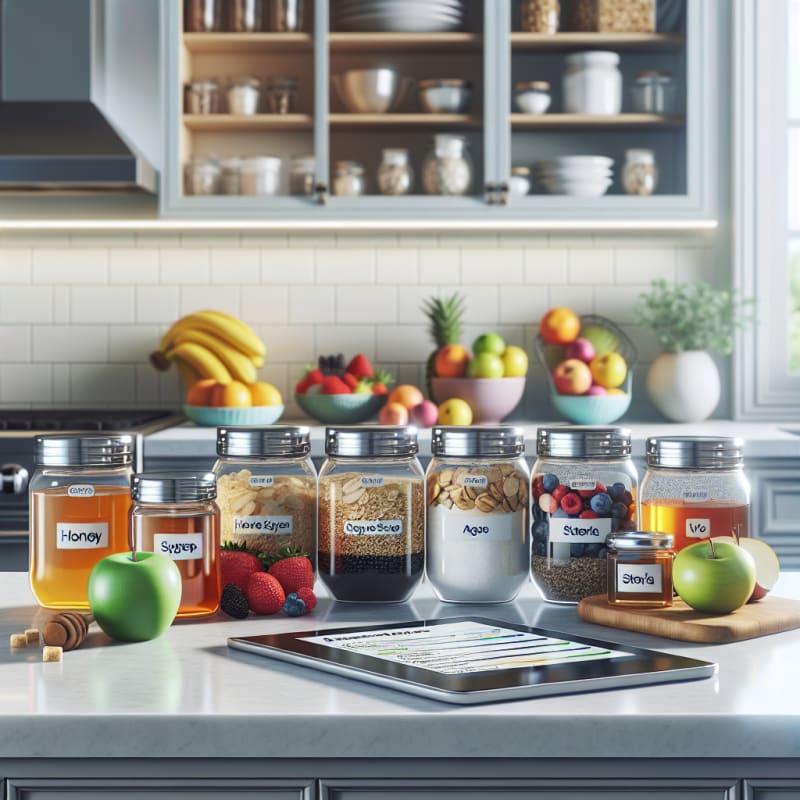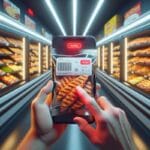Understanding Sugar Sensitivity: Why More Consumers Are Going Sugar-Free
In 2025, more shoppers than ever are checking labels for hidden sugars. From breakfast cereals to energy drinks, consumers are becoming increasingly aware of sugar sensitivity—a condition that can cause fatigue, bloating, brain fog, and other discomforts after consuming sugar. This awareness is fueling a major shift toward sugar-free and low-sugar alternatives across the food and beverage industry.
According to IFT’s 2025 Low-Sugar Shift report, the global market for reduced-sugar products is expanding rapidly as consumers demand cleaner, more transparent ingredient lists. The trend is not just about dieting—it’s about health, personalization, and better understanding how our bodies respond to sugar.
What Is Sugar Sensitivity?
Sugar sensitivity—sometimes referred to as sugar intolerance—occurs when the body reacts negatively to sugar intake. Unlike diabetes, which involves blood sugar regulation, sugar sensitivity is more about how the digestive system and metabolism respond to certain sugars, especially refined ones.
Common Symptoms of Sugar Sensitivity
- Digestive discomfort (bloating, gas, cramping)
- Sudden fatigue or energy crashes
- Headaches or brain fog
- Mood swings or irritability
- Skin breakouts or inflammation
These symptoms can vary depending on the type and amount of sugar consumed. The CDC’s 2025 Preventing Chronic Disease report highlights that reducing added sugars can improve metabolic health and lower the risk of chronic conditions such as obesity and cardiovascular disease.
Why Sugar Sensitivity Awareness Is Rising
Several factors are driving the surge in sugar sensitivity awareness:
- Health and Wellness Movements: Consumers are more educated about how sugar affects energy, mood, and inflammation.
- Regulatory Pressure: Governments and agencies are encouraging clearer labeling of added sugars, as noted by IFT.
- Viral Social Media Discussions: Online communities are sharing personal stories about sugar intolerance, sparking widespread interest. A FoodNavigator-USA article notes that sugar is “no longer the benchmark for sweetness” as consumers explore alternative blends.
- Clean-Label Demand: Shoppers want ingredient transparency and natural sweeteners instead of artificial additives.
The Shift Toward Sugar-Free and Low-Sugar Alternatives
As awareness grows, manufacturers are reformulating products to meet consumer expectations. The Dairy Foods 2025 report emphasizes that sugar reduction is now a “huge component” of health and wellness product development. This shift is visible across beverages, snacks, dairy, and even condiments.
Popular Sugar-Free and Low-Sugar Alternatives
| Alternative | Source | Best For | Notes |
|---|---|---|---|
| Stevia | Plant-based (Stevia rebaudiana) | Coffee, tea, baking | Zero calories, natural origin |
| Monk Fruit | Fruit extract (Luo Han Guo) | Beverages, sauces | Low glycemic index, mild taste |
| Allulose | Rare natural sugar | Baking, frozen desserts | Low-calorie, similar texture to sugar |
| Erythritol | Sugar alcohol | Low-carb desserts | Minimal impact on blood sugar |
The Natural Sweeteners Market report confirms that natural and plant-based sweeteners are among the fastest-growing categories worldwide, driven by consumer demand for clean-label and sustainable options.
Managing Sugar Sensitivity: Practical Tips
If you suspect you have sugar sensitivity, small lifestyle adjustments can make a big difference. Here’s how to manage it effectively:
- Track your intake: Keep a food journal to identify which sugars trigger symptoms.
- Prioritize whole foods: Choose fruits, vegetables, and whole grains over processed snacks.
- Read labels carefully: Watch for hidden sugars like maltose, dextrose, and syrup blends.
- Experiment with natural sweeteners: Try stevia or monk fruit instead of refined sugar.
- Stay hydrated: Water helps regulate metabolism and reduce cravings.
Using Technology to Support a Low-Sugar Lifestyle
Apps like Food Scan Genius make it easier to identify hidden sugars and artificial sweeteners in packaged foods. By scanning barcodes, users can instantly see ingredient breakdowns and sugar content. This helps people with sugar sensitivity make confident, informed choices.
“Food Scan Genius helped me realize how many ‘healthy’ snacks were loaded with hidden sugars. Now I can find sugar-free options that actually work for my body.” — Marina, Food Scan Genius user
Clean-Label Sweeteners: The Future of Sweetness
Clean-label sweeteners—those derived from natural sources with minimal processing—are redefining how consumers experience sweetness. According to FoodNavigator-USA, brands are increasingly using blends of stevia, monk fruit, and allulose to achieve balanced flavor without the aftertaste or digestive discomfort associated with some sugar alcohols.
Benefits of Clean-Label Sweeteners
- Lower glycemic impact
- Fewer artificial additives
- Improved taste and texture
- Better consumer trust and transparency
How the Food Industry Is Responding
Food manufacturers are reformulating products to meet sugar reduction goals while maintaining taste and texture. The IFT Low-Sugar Shift notes that innovation in sweetener technology—especially with plant-based and fermentation-derived ingredients—is reshaping the global sweetener landscape.
Major brands are also investing in research to understand how sugar sensitivity affects consumer behavior. This includes developing new product lines labeled as “sugar-conscious,” “low-glycemic,” or “sensitive-friendly.”
Why This Trend Matters for Everyone
Even if you’re not sugar sensitive, the move toward sugar-free and low-sugar products benefits public health. Reducing added sugars supports better energy balance, heart health, and long-term wellness. As the CDC emphasizes, lowering sugar intake is a key strategy for preventing chronic diseases.
Moreover, the push for transparency encourages companies to disclose more about ingredients, helping all consumers make informed choices. This aligns with the growing demand for sustainability, clean eating, and personalized nutrition.
FAQs About Sugar Sensitivity and Sugar-Free Living
What causes sugar sensitivity?
Sugar sensitivity can result from enzyme deficiencies, gut microbiome imbalances, or metabolic factors that make it harder for the body to process certain sugars efficiently.
How can I tell if I’m sugar sensitive?
Common signs include bloating, fatigue, headaches, and mood swings after eating sugary foods. Keeping a food diary can help identify patterns.
Are sugar-free products always healthier?
Not necessarily. Some sugar-free products use artificial sweeteners that may cause digestive discomfort. Look for clean-label or natural sweeteners instead.
What are the best sugar-free sweeteners for sensitive stomachs?
Stevia, monk fruit, and allulose are generally well-tolerated and suitable for people with sugar sensitivity.
How does Food Scan Genius help manage sugar sensitivity?
Food Scan Genius scans product barcodes to reveal hidden sugars and additives, helping users choose low-sugar or sugar-free options that match their dietary needs.
Is a low-sugar diet sustainable long-term?
Yes. With the right mix of natural sweeteners and whole foods, a low-sugar diet can be both sustainable and beneficial for overall health.
Final Takeaway
The rise in sugar sensitivity awareness is transforming how we think about sweetness. As consumers demand transparency and healthier options, the food industry is responding with innovative, clean-label, and sugar-free alternatives. Whether you’re managing sugar sensitivity or simply aiming for better wellness, understanding what’s in your food is the first step.
With tools like Food Scan Genius, you can easily scan, learn, and choose products that align with your body’s needs—making sugar-conscious living simpler than ever.





